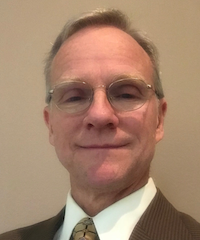GO
November 17th, 2019 by Burton Adrian
Posted in Uncategorized|
After two weeks in Nalerigu, northern Ghana, at the Baptist Medical Center, there are somethings that are at least somewhat familiar. I am feeling less a “foreigner” as I have traveled through unbelievable terrain requiring a Land Rover to get to church. The constant smell of dust, body odor, bed side commodes and infected wounds weeping pus from Staph and pseudomonas bacterial infection is the new normal. Unconscious young adults screaming out from the pain of the inflammation around their spinal cords from meningitis and cerebral malaria has lost its “shock and awe” value even when they go into a grand mal seizure until I given them diazepam intravenously to put them at rest. This occurred twice this morning before I went to church.
Due to malaria, there are a lot of intrauterine fetal deaths. Miscarriages for the same reason are common. The verses in Matthew 9:36 and 37 come to mind. “When he saw the crowd, he had compassion on them, because they were harassed and helpless, like sheep without a shepherd. Then he said to his disciples “the harvest is plentiful but the workers are few”. Such words cause me to catch my breath and want to weep. All the physicians and nurses here are so tired and over worked, and tomorrow two doctors from Burkina Faso leave, leaving even fewer for this week until re-enforcements from America arrive.
I think there is a psychological metamorphosis that happens after 2-3 weeks of being somewhere where you are the only one, or one of a limited few, who looks and acts like you. For hours on end, day after day, I see no one who is Caucasian. Only my wife Vonna and I and a surgeon from the Ukraine are white, among hundreds of Africans that visit the medical center each day. I think after this amount of time you start to see yourself as African, because everyone is, even if you are not. I am confident this is an extremely good thing. When you no longer can identify the “me” and the “them”, the “them” disappears and the only thing left is “us”. I think the stress Vonna and I are under helps this too. To see the profound suffering and naturally experiencing the empathy that is drawn out of you as you care for them puts you in their place and station in life even more.
This is perhaps part of the reason Christ commands us to GO and proclaim the gospel to make Him known. He could have said, “just sit tight and do the evangelism over the internet, it will come in about 2,000 years and it will be much easier.” Or He could have suggested spreading the gospel only through radio and TV. But he didn’t. The command was specifically to GO. Maybe Christ knew about the “me” and the “them” yielding to the “us” factor. And maybe he knew just how much joy the GOING would be to heal and fill your soul.


